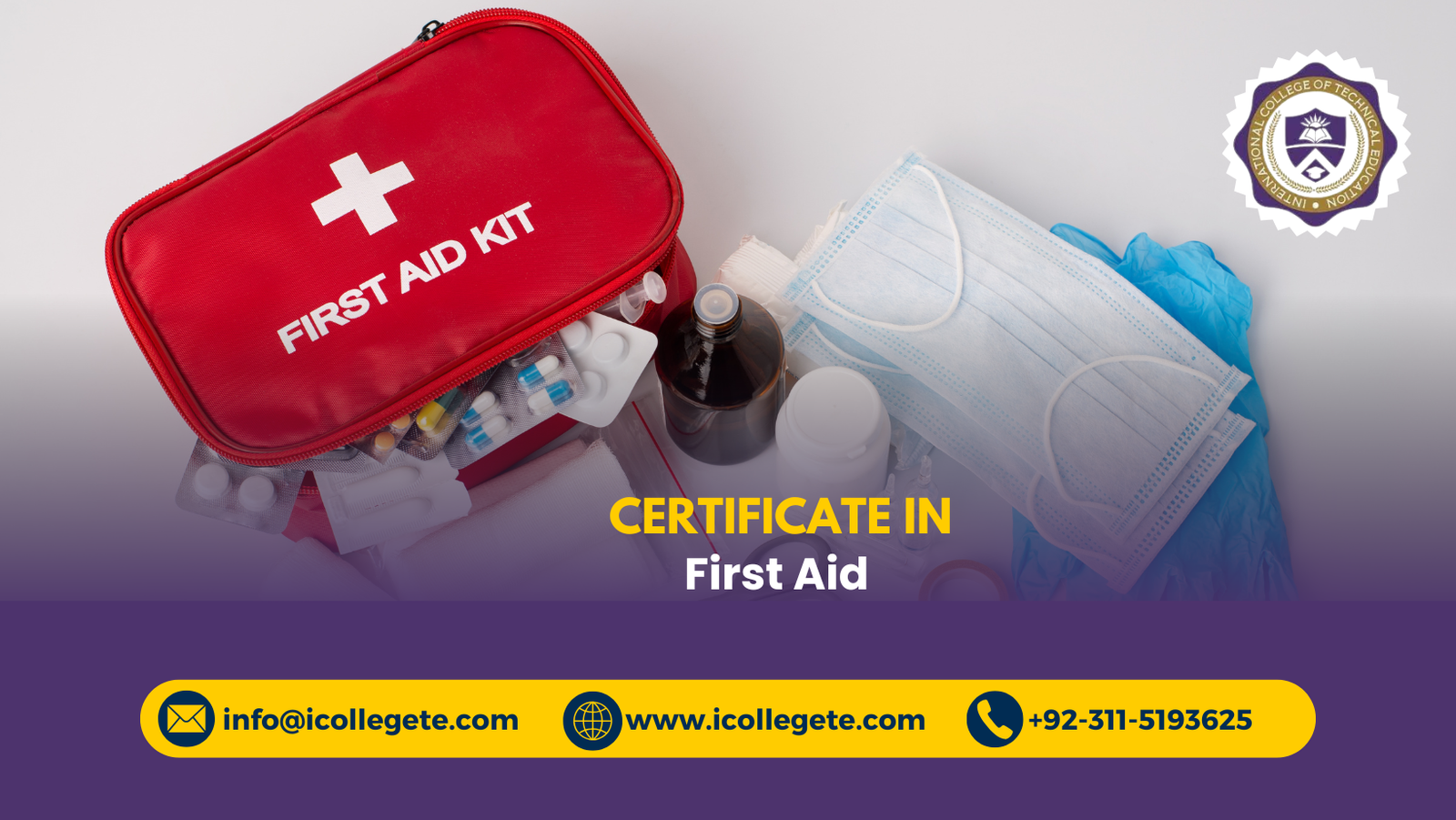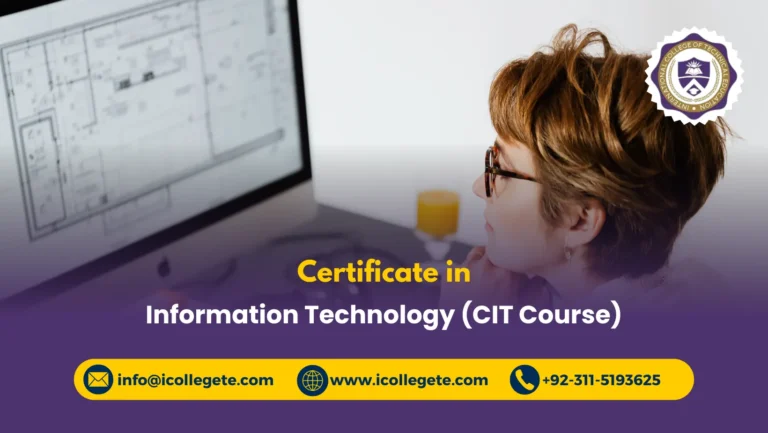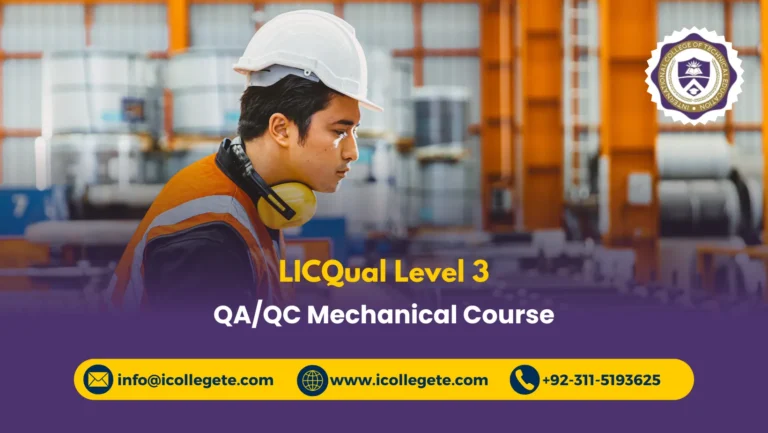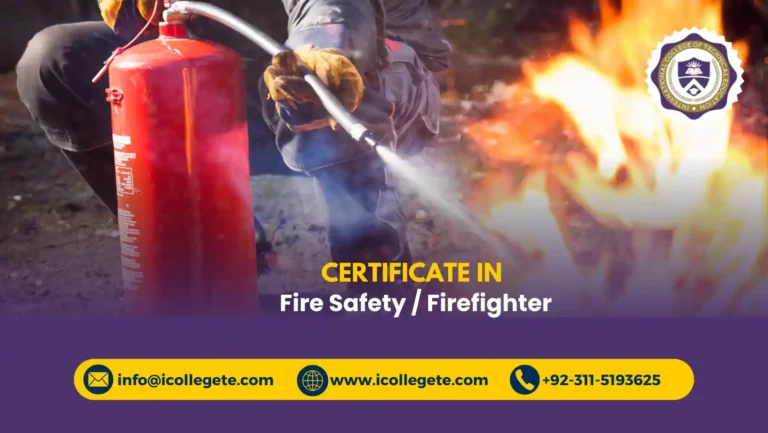Accidents and medical emergencies can happen at any time, and having the ability to provide immediate assistance can make a significant difference in someone’s life. In Rawalpindi, the First Aid course offers individuals the essential knowledge and skills to handle a variety of emergency situations, from minor injuries to life-threatening conditions.
The First Aid course is designed to teach participants how to provide immediate medical assistance in emergency situations. Whether at home, in the workplace, or out in public, knowing how to respond to injuries, accidents, and medical emergencies is crucial for saving lives and reducing the severity of injuries. This course covers fundamental first aid skills, such as CPR (cardiopulmonary resuscitation), wound care, and how to assist individuals until professional medical help arrives.
The First Aid course in Rawalpindi is structured to offer both theoretical and practical training. Participants will learn how to assess an emergency, provide immediate care, and manage injuries or illnesses until advanced medical help is available. The course is designed for individuals with no prior medical experience, but it is also suitable for those who want to refresh or enhance their first aid knowledge. Upon successful completion, participants will receive a recognized certification in First Aid.
The course is typically taught by certified trainers who have extensive experience in emergency care, ensuring that participants gain the most up-to-date and relevant information.
Study Units
The First Aid course covers a wide range of topics, with each unit providing hands-on experience and practical application of life-saving techniques:
- Introduction to First Aid: Understanding the role of first aid in emergencies, basic principles, and the importance of quick action.
- Assessing the Situation: Learning how to evaluate an emergency, determine the severity of the situation, and prioritize care.
- CPR (Cardiopulmonary Resuscitation): Techniques for performing CPR on adults, children, and infants, including chest compressions and rescue breaths.
- Wound and Bleeding Management: How to manage cuts, scrapes, burns, and severe bleeding, including dressing wounds and using bandages effectively.
- Fractures and Sprains: How to identify and treat fractures, dislocations, and sprains, including techniques for immobilizing injured limbs.
- Choking: First aid procedures for handling choking incidents, including the Heimlich maneuver and back blows.
- Shock Management: Recognizing the signs of shock and providing the necessary treatment to stabilize the victim before medical help arrives.
- Dealing with Medical Emergencies: How to manage common medical emergencies such as asthma attacks, heart attacks, strokes, and diabetic emergencies.
- Basic First Aid for Children and Infants: Special techniques and considerations when providing first aid to young children and infants.
Learning Outcomes
By the end of the First Aid course, participants will be able to:
- Assess an emergency situation and respond accordingly.
- Perform CPR on adults, children, and infants, following the latest guidelines.
- Manage common injuries such as cuts, burns, and fractures effectively.
- Recognize signs of serious medical conditions, such as shock, heart attacks, and strokes, and provide immediate care.
- Assist in choking situations, using the Heimlich maneuver or other first aid techniques.
- Provide basic first aid for infants and children, taking into account their specific needs and risks.
- Gain confidence in handling emergency situations and acting swiftly under pressure.
Course Benefits
Taking the First Aid course in Rawalpindi provides numerous advantages for participants, including:
- Life-Saving Skills: Learning first aid techniques allows individuals to provide critical care in emergencies, potentially saving lives.
- Increased Confidence: Gaining the ability to handle emergencies with composure and efficiency increases self-confidence in high-pressure situations.
- Workplace Safety: Many organizations require their staff to be trained in first aid, ensuring that businesses are prepared to handle medical emergencies in the workplace.
- Personal Responsibility: By taking the course, participants become more responsible in caring for themselves, their families, and others in their community during emergencies.
- Certification: Participants receive an accredited First Aid certification, which is recognized by healthcare organizations and can be a valuable credential for various roles.
- Preparedness in Daily Life: Accidents can happen anywhere, and being equipped with first aid knowledge helps individuals stay prepared for any unforeseen situation, whether at home, on the road, or while traveling.
Who Is This Course For?
The First Aid course is ideal for anyone who wants to gain the skills to assist others in an emergency. It is especially beneficial for:
- Parents and Caregivers: Individuals responsible for children or elderly family members who may need immediate medical assistance in case of an accident or health issue.
- Teachers and Educators: Teachers who work with children and need to be prepared for emergencies in a school setting.
- Employees and Workers: Anyone working in environments where accidents are more likely, such as construction sites, factories, or offices, should consider taking this course.
- Fitness and Sports Coaches: Coaches who supervise physical activities and want to ensure they can respond to sports-related injuries.
- Outdoor Enthusiasts: People who engage in outdoor activities, such as hiking or camping, can benefit from first aid knowledge to handle injuries in remote locations.
- Anyone Interested in Emergency Preparedness: Individuals who want to feel more confident in handling emergencies and assisting others in times of need.
Future Progression
After completing the First Aid course, there are several ways individuals can progress in the field of emergency care and medical response:
- Advanced First Aid Courses: Participants can further their knowledge by enrolling in advanced first aid courses, which cover more complex medical emergencies and techniques.
- CPR Instructor Certification: Those who excel in the course can pursue a certification to become a CPR instructor and teach others how to respond to cardiac emergencies.
- Emergency Medical Technician (EMT) Training: For those interested in pursuing a career in emergency medical services, EMT training offers advanced skills in patient care and medical transportation.
- Occupational Health and Safety Training: Individuals working in industrial or corporate settings may further their qualifications by taking courses in occupational health and safety, which include advanced first aid and emergency response.
- Health and Safety Roles: With first aid knowledge, individuals can take on roles in workplace health and safety management, ensuring that organizations are prepared for medical emergencies.
The First Aid course in Rawalpindi provides valuable life-saving skills that can be used in a variety of emergency situations. Whether you’re looking to protect your family, enhance your professional credentials, or simply feel more confident in handling emergencies, this course equips you with the essential knowledge and techniques. From CPR to wound management, this training ensures that you can act quickly and effectively in times of need. With its wide range of applications and career progression opportunities, the First Aid course is a must for anyone looking to make a meaningful difference in emergency care.





